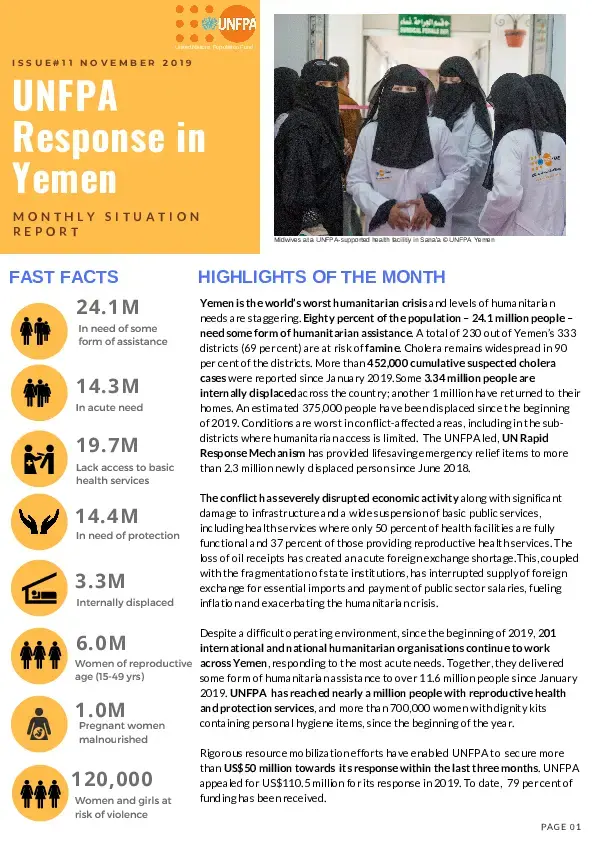Yemen is the world’s worst humanitarian crisis and levels of humanitarian needs are staggering. Eighty percent of the population – 24.1 million people – need some form of humanitarian assistance. A total of 230 out of Yemen’s 333 districts (69 per cent) are at risk of famine. Cholera remains widespread in 90 per cent of the districts. More than 452,000 cumulative suspected cholera cases were reported since January 2019.Some 3.34 million people are internally displaced across the country; another 1 million have returned to their homes. An estimated 375,000 people have been displaced since the beginning of 2019. Conditions are worst in conflict-affected areas, including in the sub-districts where humanitarian access is limited. The UNFPA led, UN Rapid Response Mechanism has provided lifesaving emergency relief items to more than 2.3 million newly displaced person since June 2018.
The conflict has severely disrupted economic activity along with significant damage to infrastructure and a wide suspension of basic public services, including health services where only 50 percent of health facilities are fully functional and 37 percent of those providing reproductive health services. The loss of oil receipts has created an acute foreign exchange shortage.This, coupled with the fragmentation of state institutions, has interrupted supply of foreign exchange for essential imports and payment of public sector salaries, fueling inflation and exacerbating the humanitarian crisis.
Despite a difficult operating environment, since the beginning of 2019, 201 international and national humanitarian organisations continue to work across Yemen, responding to the most acute needs. Together, they delivered some form of humanitarian assistance to over 11.6 million people since January 2019. UNFPA has reached nearly a million people with reproductive health and protection services, and more than 700,000 women with dignity kits containing personal hygiene items, since the beginning of the year.
Rigorous resource mobilization efforts have enabled UNFPA to secure more than US$50 million towards its response within the last three months. UNFPA appealed for US$110.5 million for its response in 2019. To date, 79 per cent of funding has been received.


